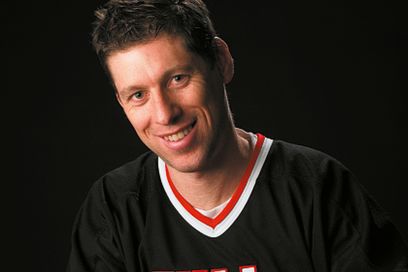

For this article, however, I'll sometimes when playing passively (checker or caller) is the best of the options.
Top pair, favourable board
Let's say that I am in the early stages of a tournament and I have a good stack. I get A - Jo in an intermediate position and I raise to three times the big blind. A player in the last position I know to be a good and aggressive player, call my raise. All other players have folded. The flop falls As - 4 d - 8 h, which gives me top pair with a good kicker.
Firstly, I think the hand that my opponent may have. He may be called with an ACE or a pair, something like 66, 77, 88 or 99. It could also have two big cards like KQ, KJ or QJ.
If that were the case, I'd be way ahead of him. Or very back if he had AK, AQ, or three of a kind. If my kicker is less good, I have more than 3 outs. If a pair like 77, it has more than 2 outs. With only 2 cards to come, his chances of winning the hand would be very low. On a board like As - 4 d - 8 h, I must not be worried of the straight draws and flush draws. For this reason, I give my opponent a free card.
If I update my top pair and my opponent has a pair, it may lie and I will not get enough value for my hand. If I check on the other hand, I may give the opportunity to this blufer ACE joueurr, whereupon the caller I.
Ideally, during the hand, I would like to make a good and make me pay and in watch the flop, I ensure that there is no more action my hand may take.
Suppose the turn a 3 c. The situation has not changed. I am either very early or very back. I can checker again to allow my opponent to bluff.
Almost all the rivers, if we have checke the flop and turn, I will generally bet. If we bet previously, I'll check-caller the river and if we bet the flop and the turn, I'll check-folder. Play the hand in this way gives me three advantages. This will give me more value for my hand and I will also save more chips if my hand is not the best. In addition, it will give the opportunity to my opponent to bluff, what could give me even more value for my hand if it has something like QJ
Good hand, hazardous board
There are a lot of chances to make good my pair of 8, but I still want to play it cautiously because another player could have the valet.
Let's say that all players checked the flop. I have not learned many things on my opponents hand because someone might slowplayer his kind of jacks.
The turn brings a 6 h. This card does not seem to have helped anyone, but the player who did the initial raise bets. It is a situation where I like caller. There are some advantages to the simple fact of caller. First, it does not commit me to the pot. If the last position player raises, I fold my hand n not too lost. Secondly, this call could scare my opponents because I have the air of slowplayer a set of jacks. Therefore, even if the player in the last position has a big pair, it will surely checker River, regardless of the card that falls. At this point, I can show my pair of 8 to see if it is the best of hands.
The problem with this game is that I give a chance to my opponents to catch one of their six possible outs if they have two big cards.
Usually, I don't play passively, but sometimes, when appropriate, simply caller may be the best of the options to reduce the risk.
For more examples on the passive game, I suggest you read of in defence of the call by Gavin Smith.




